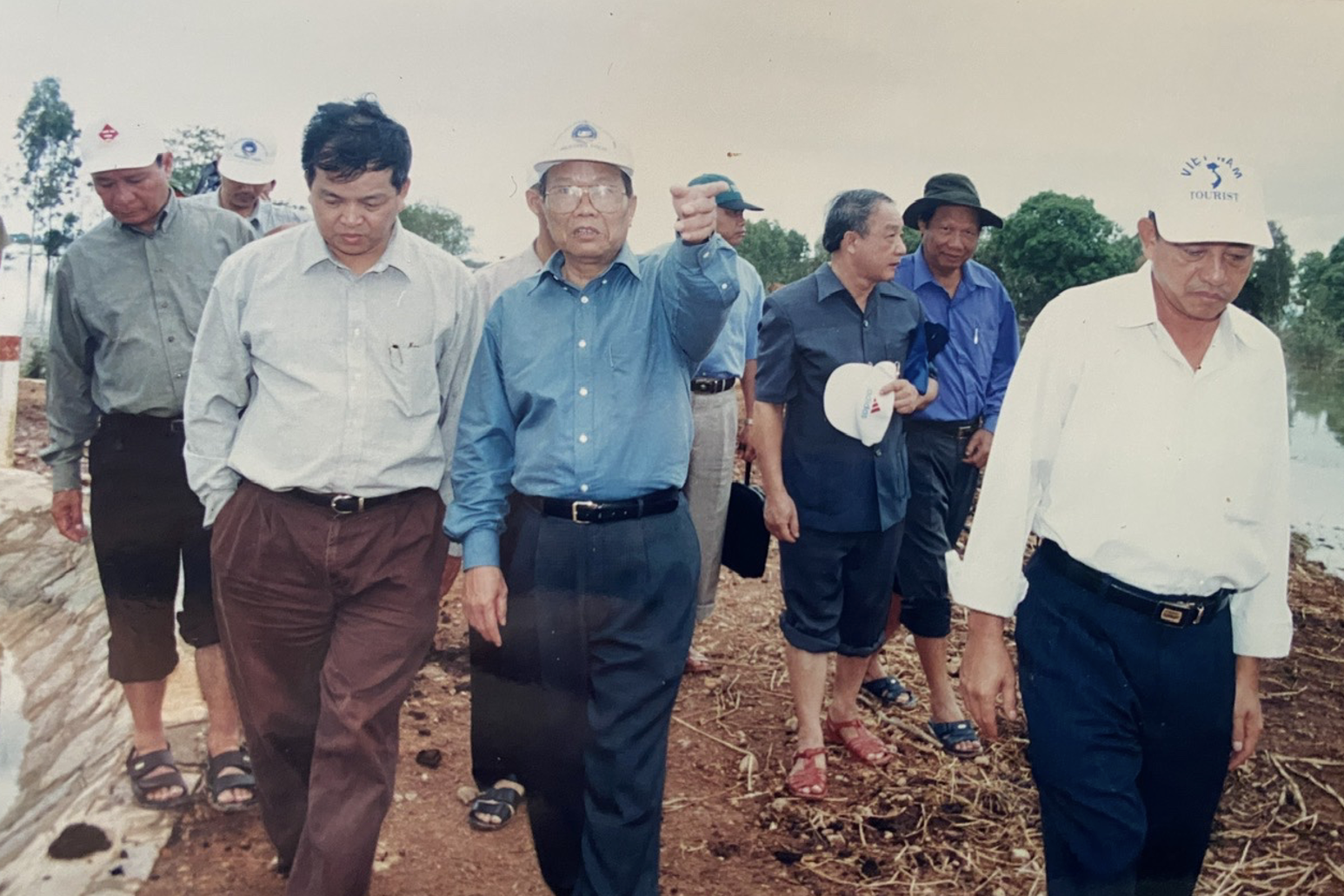Bidding farewell to Tran Duc Luong, the former President who served during a pivotal era in Vietnam’s development, I do not only remember him as a model statesman, but also as a profound leader who prioritized intellect and responsibility over status or ceremony.

When I received the news of former President Tran Duc Luong’s passing, I was speechless for a long moment. Though death is inevitable, for those who had the chance to work closely with him, his departure leaves behind a quiet void that words can scarcely capture.
Prime Minister Vo Van Kiet once shared with me that among his most trusted associates during his tenure, three deputy leaders representing Vietnam’s three regions earned his special respect: Tran Duc Luong, Phan Van Khai, and Nguyen Khanh. Each had a unique leadership style and strength, but all demonstrated unwavering dedication to the Party and the people.
I first met President Tran Duc Luong in early 2000, invited by Nguyen Canh Dinh, then Chief of the Presidential Office. The meeting was tied to a pressing national issue at the time: water resource management and environmental protection - fields I was deeply involved in.
During the historic flood of 2000 in the Mekong Delta, President Luong led a field inspection trip alongside Nguyen Canh Dinh, Minister of Agriculture and Rural Development Le Huy Ngo, the Deputy Minister of Transport, and leaders of Dong Thap and Kien Giang provinces. I was in a following boat with Nguyen Ty Nien, Director of the Flood and Storm Control Department. Suddenly, the President’s boat stopped. A security officer came over and asked me to join the President onboard.
It turned out there was a lively debate onboard about the water flow direction in the Hong Ngu canal. Some said it flowed inward, others claimed it flowed outward. The President asked highly technical and specific questions - not just about hydrology, but also topography and geology. Faced with his incisive inquiries, Minister Ngo suggested I join the discussion. I detailed the hydraulic calculations, boundary and initial conditions, surface roughness, local loss, upstream inflows, tidal influences, and agricultural impacts.
President Luong listened attentively without interrupting, occasionally nodding and posing follow-up questions. His working style left a deep impression on me. He was never loud, but he always delved to the heart of any issue.
That evening, at the Kien Giang Provincial Party headquarters, the President chaired a meeting with ministries and local officials. His concluding remarks were concise yet comprehensive, laying out both immediate and long-term solutions for flood recovery. Minister Ngo once told me: “Few people realize how attentively President Luong listened - not just to hear, but to understand, remember, and act.”
After the meeting, President Luong invited me to play Chinese chess. The next morning, as I entered, Minister Ngo teased, “How many games did you lose last night, Truong?” I laughed, half-jokingly said I was up by one win, and added that the most important thing was both sides played honestly and in the spirit of sportsmanship.
To be honest, I’m not the type to flatter leaders or deliberately lose to please them. Fortunately, President Luong was not the type to enjoy being indulged. He played chess like he governed - with integrity, decisiveness, and a disdain for sycophancy or scripted defeats.
That straightforward character only deepened my respect for him. On the chessboard, he set tactical traps; in governance, he posed complex challenges - not to test people, but to seek real solutions.
On one occasion, concerned about severe water shortages in the Mekong Delta, he called me personally to ask: “Given the acidic, saline soil and flat terrain, could we use geotextile fabric to create freshwater reservoirs where feasible?”
It was not an order, but a thought-provoking suggestion. Each of his questions carried depth and compelled us to reflect deeply. Many new ideas were born from such moments - later translated into technical proposals that contributed to reshaping water management strategies across the delta.
I also met him at the Ho Chi Minh City Party Congress, alongside the late Prime Minister Vo Van Kiet. The three of us had a heartfelt discussion about sustainable development for the Mekong Delta.
Born in 1937, Tran Duc Luong was originally a geologist - a profession demanding meticulousness, precision, and patience. That background shaped his technocratic approach. He avoided slogans and superficiality, preferring practical, evidence-based work, especially in resource management, environmental policy, and territorial planning.
He served for many years as Deputy Prime Minister and later as President, during a transformative period in the country’s history. His legacy is one of stability and moderation, free from controversy. International media often described him as “a quiet but influential figure in Vietnam’s integration process.”
Former General Secretary Nong Duc Manh once said in a closed-door meeting: “Luong is a man of few words, but each one is solid. He is not swayed by public opinion or fleeting emotions.” Many colleagues recall his respect for technical expertise and his commitment to consulting scientists - something not all leaders consistently prioritize.
As we bid farewell to Tran Duc Luong, a President who stood by the nation in a critical era, I remember not only a model statesman but also a calm and thoughtful leader who placed intellect and responsibility above fame and appearances.
He lived quietly, worked diligently, and made lasting contributions to policy, spirit, and the memory of those who worked beside him. He exemplified the kind of technocratic leadership that Vietnam’s modern political landscape continues to need.
To Van Truong